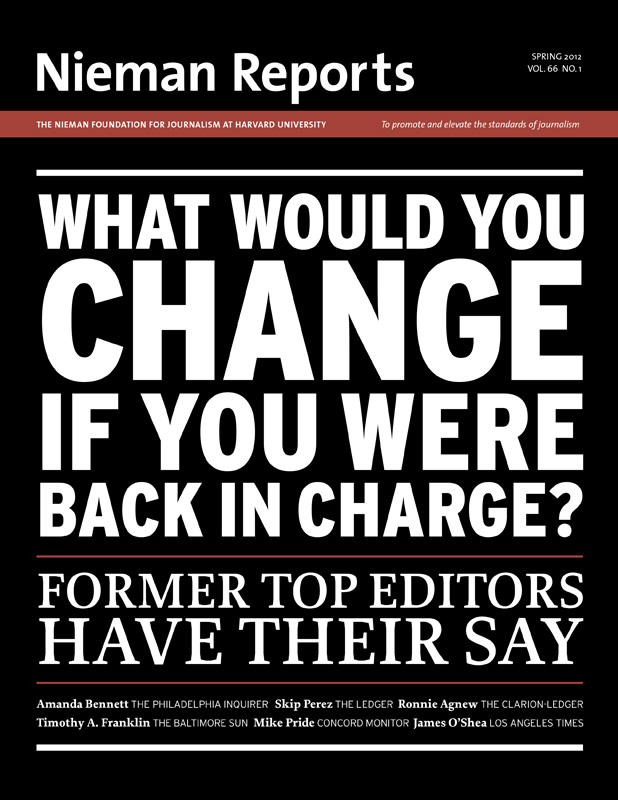
Illustration by Eric Hanson.
I come from a town where people put their grocery bags on the pavement and dance when a good song blares over a car radio. I’ve done it. My friends and family have done it. That’s just the way New Orleans is. We prick up our ears for the whiff of a melody and let it take us away. That may be why I’m so easily seized by music—even ambient music—no matter the location or circumstance.
During my time in East Africa, from 2006 to 2010, music underscored and punctuated life in a way that I have not experienced before or since. Yes, there were drums. Yes, there were handmade instruments. Yes, the songbirds sang and the chanting frogs chanted and a percussive wind moved through tall grass and bottlebrush trees. Ululations? Check. Tinkling laughter of children playing? Check. But, more often than not, Dolly Parton and Kenny Rogers were on the radio singing:
Islands in the stream
That is what we are
No one in-between
How can we be wrong
Sail away with me
To another world
And we rely on each other ah ah
From one lover to another, ah ah
The Parton-Rogers collaborations and their solo recordings of the 1970’s and 1980’s feature prominently in East Africa, where radios far outnumber TV sets. Listening to the radio in that region can be like entering a time warp, where U.S.-based music known as “Country-politan” is still going strong. In Kenya, I often felt like a little girl again, as if I should be waiting for “The Mac Davis Show” to come on TV. Or “Mannix.”
East Africans also listen to reggae, rock ‘n’ roll and hip-hop. But let’s face it, country songs tell more universal stories. Women from Nairobi to the Napa Valley will likely meet a man-stealing “Jolene” at some point in life:
And I can easily understand
How you could easily take my man
But you don’t know, what he means to me, Jolene
And men from Juba to Juneau fear that their “Ruby” will take her love to town:
Oh Ruby, for God’s sake turn around
Some songs seem cathartic. It’s no accident that “Coward of the County” is an all-time favorite in Kenya. The song, written by Roger Bowling and Billy Edd Wheeler, tells the story of a man who is pushed to violence when thugs rape the love of his life. East Africans rarely speak about such matters in public. And yet “Coward of the County” creates a space for public acknowledgement and discussion of a serious crime that shatters families throughout the region and around the world. That’s what great storytelling can do.
Other songs simply help people find dignity in circumstances beyond their control. I once hired an SUV and driver to transport me from northern Uganda to Kampala—an eight-hour, dusty, bumpy, swerving ride. Acholiland in northern Uganda was returning to life after years of war between the government and rebel militias, most notably the Lord’s Resistance Army. Murderous raids, unspeakable mutilations, and child kidnappings had forced whole populations from their land. Thousands were still living in camps. The driver, a young man whose clothes passed for “fashion-forward” in the north, must have played Dolly Parton’s “Coat of Many Colors” 17 times:
And I tried to make them see
That one is only poor
Only if they choose to be
Now I know we had no money
But I was rich as I could be
In my coat of many colors
My mama made for me
Rwanda, during my brief visits there, was all about the blues. By the time I arrived, President Paul Kagame had cut all ties with France, beefed up relations with Washington, and passed a law making English, not French, the preferred national language. If a Hutu or Tutsi had any ambition whatsoever, that person needed to learn English quick.
Paul X, my driver for hire, would transport me from the airport in Kigali to the border crossing with the Democratic Republic of Congo—a journey lasting several hours. It’s a nice ride. Rwanda is impossibly green, manicured, blooming. Bean fields are laid out with slide ruler precision. Mountains and lakes look like Switzerland in springtime. But in Paul’s Toyota, we could have been driving through the Mississippi Delta. His MP3 player was set exclusively on B.B. King and Eric Clapton. Paul was betting on the CD “Riding With the King” to improve his English:
When the moon peeks over the mountains
Baby I’m gonna be on my way
I’m gonna roam this mean old highway
Until the break of day
It seemed fitting that we listened to the blues in Rwanda. Despite giant strides—a growing infrastructure, rising economy, a motivated work force, and impressive gains in the cultivation of tea and coffee—an unexpressed sadness hangs over that nation. Around every corner is a reminder of the 1994 genocide. In the spaces between people. In the silences. In the vaguely perceptible undercurrents of spite.
Every time Paul and I drove to the Congolese border and back, we passed a tiny building called The Clean Heart Hotel. To me, that sign was an indicator of how Rwandans still identify themselves by the experience of 1994. Matters of conscience find berth in the smallest of spaces there and loom over the horizon like a brilliant sunset. Ultimately, what’s done will never be done. That’s the staying power of the blues.
Peacekeepers play a lot of love songs. In Darfur, an Egyptian officer once complained, “There’s no food, no women, nothing here.” The region, which is almost the size of France, feels empty for the most part. It takes helicopter rides over miles of scrub to reach the major cities. But at the same time, Darfur is brimming with petticoat layers of intrigue and conflict. Brothers-in-arms one day, will disown each other the next. Rebel fighters fleece their own people. Both the Janjaweed and the rebels resort to banditry to make ends meet, routinely manipulated and abandoned by silent benefactors at home and abroad.
The African Union/United Nations peacekeeping force, made up of Africans from all over the continent, must patrol areas in and around Darfur’s enormous displacement camps. Riding in their protected vehicles over the unforgivably hot sands of the growing desert, the peacekeepers mostly listened to Celine Dion. Tracy Chapman was also on high rotation. But the ride I remember best was in a convoy with then U.S. special envoy Scott Gration. I couldn’t get my gear in place fast enough to record what the driver—a non-Arab Darfuri—was playing: Bob Marley’s “Redemption Song.”
How long shall they kill our prophets
While we stand aside and look
Some say it’s just a part of it
We’ve got to fulfill the book
Won’t you help to sing
Another song of freedom
‘Cause all I ever have:
Redemption songs
Redemption song
It’s a beautiful melody to hear on an empty horizon. Makes you hopeful.
My favorite musical moment was in northern Sudan, outside a town called El Obeid. I was reporting a story about gum arabic, a resin from a particular acacia tree that is vital to pharmaceuticals, soft drinks, watercolors, newsprint and a wealth of other products. Somehow I got arrested and—after protracted negotiations—left the following day. On the long, flat, sandy road back to Khartoum, there was only the occasional camel carcass to look at. I was feeling about as deflated as they looked. Then, over the truck radio, I heard a sweet, gravelly voice sing:
It’s very clear
Our love is here to stay
Not for a year
Forever and a day
“That’s Louis Armstrong!” I yelled to the interpreter and driver. “He’s from my hometown!”
They looked confused.
“He’s from my hometown!” I yelled again.
I don’t know if they ever really understood. But they looked happy that I looked happy.
In time, the Rockies may crumble
Gibraltar may tumble
They’re only made of clay
But our love is here to stay
By the time the song ended, my heart was soaring. For a moment, I was home again and all was right with the world. Then I realized, home was East Africa and that felt right, too. I turned up the radio full blast.
Gwen Thompkins, a 2011 Nieman Fellow, was East Africa correspondent for NPR from 2006 to 2010. Before that she was senior editor of NPR’s “Weekend Edition Saturday” for 10 years. She now lives in New Orleans in a house where every room has a picture of Louis Armstrong.



